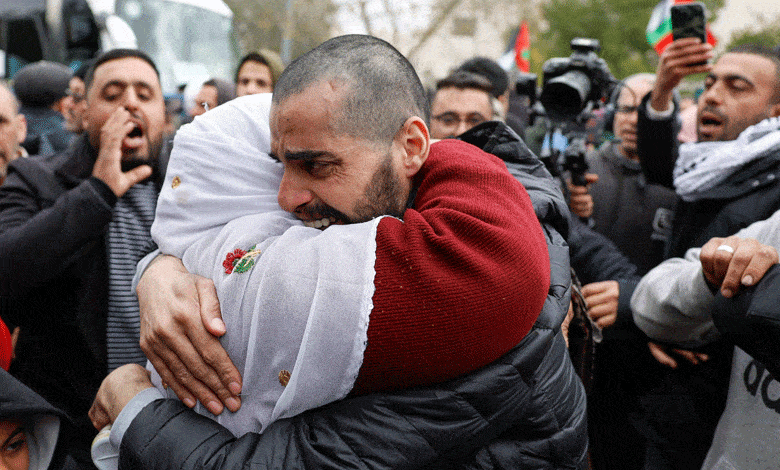Israel Releases 183 Palestinian Prisoners in Exchange for Hostages Held by Hamas
In a significant move under the ongoing ceasefire agreement, Israel has released 183 Palestinian prisoners as part of a broader exchange for Israeli hostages held in Gaza. This prisoner swap marks a continued effort to ease tensions, though the future of the ceasefire remains uncertain.

In a significant move under the ongoing ceasefire agreement, Israel has released 183 Palestinian prisoners as part of a broader exchange for Israeli hostages held in Gaza. This prisoner swap marks a continued effort to ease tensions, though the future of the ceasefire remains uncertain. The prisoners released on Saturday include individuals with various charges, from involvement in militant attacks to those arrested without trial since Hamas’ October 7, 2023, attack.
Table of Contents
Key Palestinian Prisoners Released
The 183 Palestinian prisoners released include both high-profile and lesser-known figures who have spent years behind bars. Some of the most notable among them include:
Iyad Abu Shakhdam
Abu Shakhdam, 49, was sentenced to 18 life sentences for his role in Hamas attacks that resulted in numerous Israeli deaths during the Second Intifada. One of the most infamous attacks he was involved in was the 2004 Beersheba bus bombings, which killed 16 Israelis.
Jamal al-Tawil
A prominent Hamas figure from the West Bank, al-Tawil, 61, has spent nearly two decades in Israeli prison. He was arrested in 2021 for his alleged involvement in planning violent protests and for recruiting Hamas activists. Al-Tawil had previously served as the mayor of Al-Bireh, a town near Ramallah, while in prison.
Mohammed el-Halabi
El-Halabi, 47, was the manager of the Gaza branch of World Vision, a Christian aid organization, until his arrest in 2016. Israel accused him of diverting millions of dollars to Hamas, though independent investigations found no evidence of wrongdoing. El-Halabi was sentenced to 12 years in prison and was released on February 1.
Shadi Amouri
Amouri, 44, was involved in the 2002 Megiddo Junction bombing, which killed 17 Israelis. He was sentenced to life imprisonment for his role in the attack and was transferred to Egypt on February 1 for exile.
Zakaria Zubeidi
Zubeidi, a former leader of the Al-Aqsa Martyrs’ Brigade and director of the Freedom Theatre in Jenin, was arrested in 2019. His escape from a high-security prison in 2021 made headlines worldwide. Zubeidi was released on January 30, 2025, and returned to the West Bank.
Mohammed Abu Warda
Abu Warda, sentenced to 48 life terms for organizing multiple suicide bombings during the Second Intifada, was released and deported on January 30. His actions contributed to the deaths of more than 40 Israelis.
Mohammed Aradeh
A member of Palestinian Islamic Jihad, Aradeh was sentenced to life for planting explosives and attempted murder. Aradeh was part of the group that escaped prison in 2021, famously tunneling out of one of Israel’s most secure facilities.
Mohammad al-Tous
At 67, al-Tous held the record for the longest continuous imprisonment in Israel. He was arrested in 1985 for his involvement in militant activities and served 39 years before his release.
Reactions to the Release
Also Read: Hamas to Release 3 Israeli Hostages in Exchange for 183 Palestinian Prisoners
The release of these prisoners is controversial, with Israel viewing many of them as terrorists, while Palestinians see them as freedom fighters resisting occupation. Israel has made it clear that these individuals were arrested for their involvement in attacks that killed Israeli civilians, while Palestinians argue that many are detained for lesser offenses, such as protests or membership in political organizations like Hamas.

As part of the truce, 7 of the most dangerous prisoners were transferred to Egypt ahead of their potential deportation. This exchange highlights the ongoing tensions and deep divisions between Israel and Palestine, with both sides using the situation to score political points in the larger conflict.
While the swap is a key development, the future of peace efforts remains unclear as both sides have significant disagreements over the status of prisoners, hostages, and the overall direction of the ceasefire.
